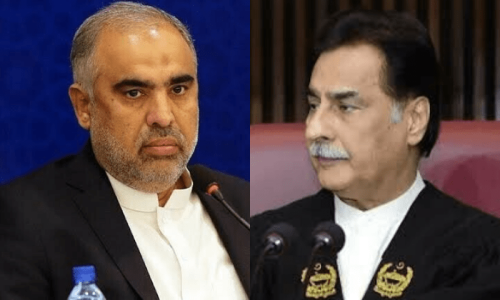NEW DELHI, Dec 30: Pro-India parties will form the next government in occupied Kashmir.
No single party managed to win a majority in the disputed territory’s election, which took place in several phases and ended last week, and so the major parties scrambled to form an alliance to take power.
The National Conference that with 28 seats won more than any other party, and the Congress party, which won 17, struck an agreement on Tuesday to form a new coalition, giving them a majority in the state parliament, officials said.
At 38, National Conference chief Omer Farooq will be the youngest chief minister occupied Kashmir has seen. Farooq’s father and grandfather were also top officials in the state.
“It was decided that I will head the coalition government in Jammu and Kashmir,” he told reporters in New Delhi after meeting Congress party chief Sonia Gandhi.
Anti-India sentiment runs deep in Kashmir, where most people favour either independence or a merger with Pakistan. Farooq Abdullah — a senior National Conference leader and Omer Farooq’s father — vowed on Tuesday to work with anti-India politicians to settle the decades-old Kashmir dispute.
“The separatists should not feel alienated and should be brought into the mainstream to talk,” said Mr Abdullah.
Mirwaiz Omer Farooq, a key Kashmiri leader, dismissed the new coalition as a shuffle of the same faces and ideologies. “What is to be seen is whether this government will muster courage and represent the aspirations of people here,” he said.
“What we need is a policy change in Kashmir, not an administrative change.”
He and other anti-India leaders had urged residents to boycott the vote, saying the election would only strengthen India’s hold on the Himalayan region. But voting was largely peaceful, with a higher-than-expected turnout of more than 60 per cent.
The Congress party, which leads the governing coalition in power in New Delhi, ruled the region in an alliance with another party, the People’s Democratic Party, until August when the chief minister resigned following weeks of protests that left more than 50 people dead.
The federal government stepped in to fill the vacuum and announced plans to hold the phased election.—Agencies













































Dear visitor, the comments section is undergoing an overhaul and will return soon.